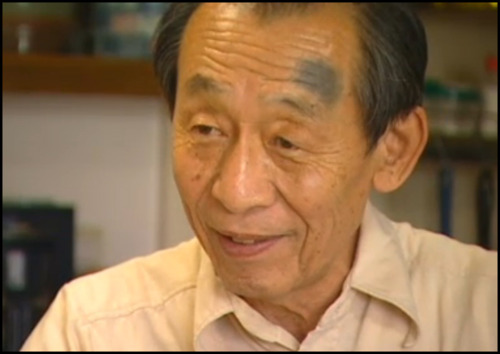The first question that should be asked is whether it matters if Iran develops a nuclear arsenal. After the Iranian revolution ousted the American-installed Shah in 1979, Iran has an extensive history of kidnapping Americans in addition to assisting in the 1983 bombing of American Marine barracks in Beirut. Iran's open patronage of militant groups like Hezbollah and Hamas as means of furthering their influence in the region increases the frightening possibility of a nuclear device being used against a regional rival. From Iran's perspective, the incentive to acquire a deterrent that would insure against invasion is abundantly clear based on its recent history. Iran was involved in a brutal eight-year war that involved chemical weapons after it was invaded by Iraq. After 9/11, the United States invades Afghanistan which shares Iran's eastern border. Later, George W. Bush groups Iran with Iraq before invading the latter. Worrisome hypothetical situations easily come to mind when considering the introduction of a nuclear weapon, but mutually assured destruction is not a given. The Cold War never erupted into an open war and the network of aligned countries for indirect conflict is already established, but without the ideological foundation. Those opposed to a nuclear Iran in addition to the U.S. would be Saudi Arabia, Egypt, Turkey, Israel, Britain, and France. Iran's coalition is a mix between nations vociferously supporting the Islamic Republic's right to nuclear power (Venezuela, Brazil, etc), Russia and China whom support and protect it in the United Nations Security Council, and non-state organizations in Gaza, Lebanon, Iraq, Yemen, and Bahrain. In this scenario the real danger is similar to the Cuban Missile Crisis in which tensions run high, communication is almost nil, and erroneous assumptions could lead to a nuclear exchange.
Israel's foreign policy toward hostile neighbors has consistently relied on preemptive strikes, establishing deterrence by disproportionately reacting to attacks, and refusing to comment on its military capacity or action in other countries. Israel has bombed a reactor in both Iraq and Syria and succeeded in meeting their short term goals. There was no retaliation and only verbal condemnation by the international community. Geographically, Israel is a tiny country and its cities are some of the most densely populated in the world. If it were to suffer a nuclear attack, retaliation might not even be an option. A study organized by the FBI found that the forensic evidence left behind by a nuclear detonation could take months to trace back to its origin.

Bombing Iran's nuclear facilities would be exponentially more difficult than previous operations. In both previous cases, Israel's objective was to destroy a single reactor. Iran has 15 nuclear facilities, they are are near population centers, and the Fordow reactor (capable of producing weapons grade material) is buried deep within a mountain. Not only is Fordow impossible to attack with conventional bombing, but it is near Qom, the epicenter of scholarship for the dominant denomination of Islam in Iran, Shiism. Given that the various sites are spread across a large area and situated among population centers there would likely be a high number of casualties for both sides. The 2009 protests after the Iranian regime's vote rigging and subsequent infighting between President Ahmadinejad and Ayatollah Khamenei would be forgotten as the regime could solidify its control as nationalistic fervor would come to a boil. The isolative diplomatic position of the Islamic Republic would harden and the value of nuclear weapons as a deterrent against regime change would grow. Any civilian casualties would affirm the wildest suspicions of every conspiracy theorist that paints the U.S. and Israel with the same villainous broad brush.
The role for the U.S. in this situation is unclear. On one hand the U.S. has put an incredible amount of political, military, and financial support behind the only functioning democracy in the Middle East. But the allegiance cuts both ways and the potential for the U.S. to be dragged into a potential conflict is quite high. When Israel bombed the Syrian reactor in 2007, the initial reactions from American officials indicated that the U.S. was not aware of the attack until it hit the news. Given the unfavorable image the U.S. has in the Middle East, the best option would be for the U.S. to do what it can to restrain Israel and organize international pressure on Russia and China. China is Iran's largest trading partner and it has been susceptible to international pressure in the past, but those moments were in the run up to the 2008 Olympics. Sanctions have been effective in stifling Iran's economic growth.
With so much of Iran's economy controlled by the country's religious leaders and Revolutionary Guard, sanctions have solidified the regime's grip on the economy. 60% of Iran's economy is composed of oil revenues which is not quite enough to allow the government to finance programs without care like some of its gulf neighbors. While it is the fourth largest oil producer in the world, the Islamic Republic lacks sufficient facilities to refine oil into gasoline, so it exports oil and imports gasoline and depresses the price of gas with enormous subsidies. The Iranian government also subsidizes bread and several other household staples which eat a large part of the national budget. Attempts to cut subsidies have been wildly unpopular and have hamstrung economic reforms. Sanctions will be effective if they increase resentment towards the regime and trap it in a lose-lose situation in which it cannot cut subsidies and cannot take steps to improve the economy.
Any American action that would impede Iran's ability to supply oil would cause the price of gasoline, heating, shipping, produce, etc. to rise and make a bad economic situation in the U.S. worse. The political backlash from American constituents would severely decrease American policy makers' appetite for further action against Iran. It's true that the U.S. does not import oil from Iran, but oil is sold on an international market and any dip in Iranian exports will mean that China, Japan, India, Italy, and South Korea will have to look elsewhere and prices will soar. For sanctions to be effective, Iran's other trade partners would need to be willing to cooperate. In sum, the United States can effectively disrupt Iran's aspirations of developing nuclear weapons with diplomacy and sanctions. Iran has struggled to complete a project that other countries have accomplished in considerably less time (China, India, Pakistan, Israel, and North Korea). It would not be too much of a leap to infer that sanctions have greatly hampered Iran's progress. Pressuring Russia and China does not often result in cooperation with American interests, but the U.S. has strong ties with most of Iran's biggest trade partners, the aforementioned Germany, Japan, South Korea, and Italy. Attacking Iran would temporarily set back a weapons program and make any future interactions unlikely to yield results.











